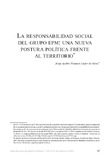Gamified Focus Group for Empirical Research in Software engineering: A Case Study

Compartir este ítem
Fecha
2023Autor
Restrepo-Tamayo L.M
Gasca-Hurtado G.P.
Citación
Metadatos
Mostrar el registro completo del ítemResumen
Focus group discussion is an empirical research method for qualitative studies aimed at eliciting information and perceptions from practitioners. This method is used in software engineering to validate and generalise research results. However, the time available to conduct the sessions could be improved, more tools are required to achieve the discussion in a structured way, and it is vital to avoid the inhibition of the participants. This study proposes a gamification-based strategy to conduct research in which the focus group method is paramount for validation and overcoming some mentioned limitations. For this purpose, a gamification strategy design method consisted of five phases: planning, design, pilot testing, programming and evaluation. The designed strategy was applied in a focus group of seven professionals to prioritise six non-technical factors required in software development teams within Industry 4.0. Applying the gamified strategy allowed us to capture the feelings of all group members methodically within a limited time window. Therefore, the strategy is a potential structured tool for conducting focus group sessions. © 2023, The Author(s), under exclusive license to Springer Nature Switzerland AG.
Colecciones
- Indexados Scopus [1813]
Ítems relacionados
Mostrando ítems relacionados por Título, Autor o Palabra clave.
-
Differential galois groups and representation of quivers for seismic models with constant hessian of square of slowness
Acosta-Humánez P.; Giraldo H.; Piedrahita C. (Pushpa Publishing HouseFacultad de Ciencias Básicas, 2017) -
La responsabilidad social del grupo EPM: una nueva postura política frente al territorio
Polanco López de Mesa, Jorge Andrés (Pontificia Universidad JaverianaDoctorado en AdministraciónFacultad de Ciencias Económicas y Administrativas, 2014)El Grupo EPM experimenta un cambio notable en su estrategia de responsabilidad social. El objetivo de este trabajo es analizar la relación entre el cambio de estrategia y la postura política de la empresa en el área de ... -
War crimes and organized crime groups: problems from the congruence principle and the competence for their judgment
Rincón Angarita, DubánAlthough there are disparate theoretical positions on the nature of the organized crime groups currently operating in Colombia, the hermeneutical rules of the Constitutional Court’s jurisprudence establish that it is ...

